This is a 4-part series on the Lewis-Clark Valley Loggers, a college-level football program composed of men who play and coach for the love of the game.
Part 4: Finding Their Niche
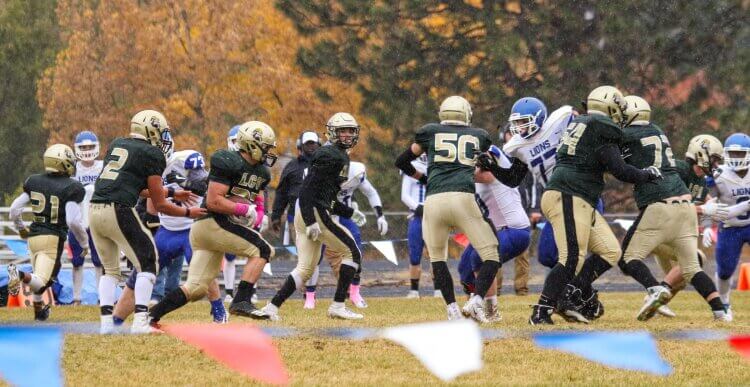
The small college football community is tight-knit and programs support one another in meeting the myriad of challenges they face in their efforts to stay viable. Many NCAA Division-III programs carry rosters of 120-130 student-athletes. As such, it’s likely that most freshman and sophomores won’t see much playing time which often results in them leaving to seek a new and different opportunity. The Loggers provide such teams with competition opportunities. Doing so helps those programs retain student-athletes and provides the Loggers with the opportunity to increase the number of games on their schedule.
LC Valley Loggers are talented, tough, and hard-nosed. “I always say we’re the Bad News Bears of college football because it’s not only the budget, but we’ve got a small roster, a lot of these guys were passed over, not given the opportunity by NCAA or NAIA schools, so we’re really up against everything. We’re definitely a small fish in a huge pond, or ocean perhaps, but that’s part of what makes it fun,” Program Director, Bob Thorson shared.

However, word has gotten out. The Loggers are for real and student-athletes are now choosing the program. Thorson continued, “There was a player that was going to go to Montana Western and another to Montana Northern, we had another player that was going to Valley City College, an NAIA school in North Dakota, and another to Presentation College in South Dakota, but they evaluated, they weighed the pros and cons and we told them, we said ‘You’re a great player and you will do well in NAIA football or Division-III football,’ but we said,… we want you to come here’ – and they said ‘Well, that’s what our coaches said, our high school coaches, go where they love you…’.”
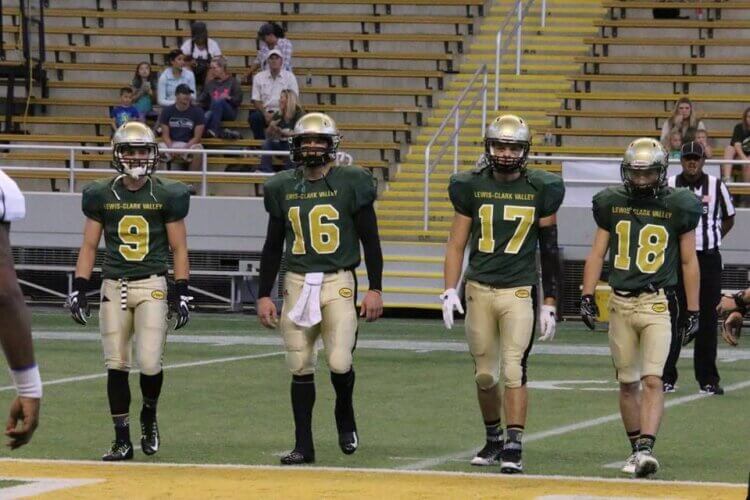
The Logger program feels like a family and runs because of the commitments the staff and student-athletes have made to one another. The program challenges the status quo on every level. People familiar with the program and complete strangers recognize the value the program provides to the lives of the young men it serves and are drawn to contributing to its success. Even those faculty who are described as being “anti-athletics” are now fans. Thorson shared,
“Professors have laughed and said, ‘You know, some of the professors say nice things about you guys’ – [some] of the kind of anti-athletic professors on campus because they see that a lot of money goes to athletics, but the language, the foreign language program is cut or the theatre program, and they say ‘Why is that?’ So, then they’re saying, ‘Well, look at the Loggers, they’re self-funded and they’re competing, and they don’t need a dime, so why are you telling me that athletics needs this much more money and we have to slash these programs?’”
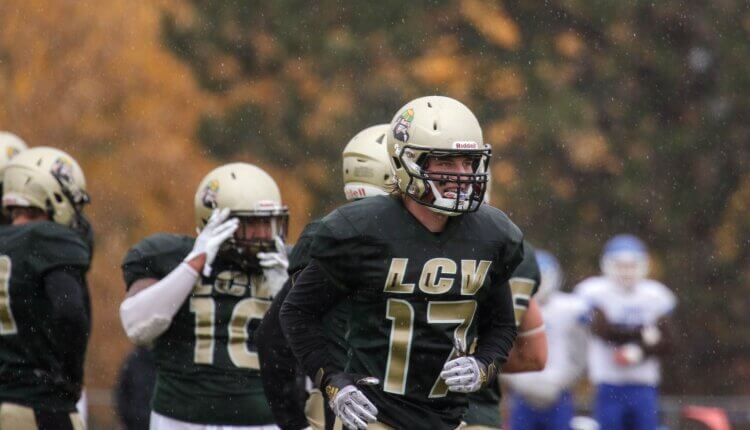
Perhaps one of the most poignant examples of graciousness and support was evident in a story about a bus trip in 2014 that would challenge even the most seasoned traveler. Three games into the season, the Loggers were on their way to Snohomish, Washington to play the League Champion Everett Red Raiders. The team got off to a late start from Lewiston because a player didn’t arrive on time for departure. After deciding the player would meet the team on the road, the bus departed 20 minutes behind schedule. Thorson shared,
“[A]long the journey he (the student-athlete) was giving us periodic updates about where he was, how far he was behind us. He sounded like he was about 20 minutes behind us. We finally got to Ellensburg and the players ate and we waited for this player for 20 minutes, and then we waited for a half an hour, and then we waited for 40 minutes, and then we waited an hour…and then we realized that he wasn’t coming and he wasn’t actually behind us. [We] finally left Ellensburg quite behind in our schedule because we’d been there for an hour and our initial departure from Lewiston was 20 minutes late. As it was, we were cutting it close.”
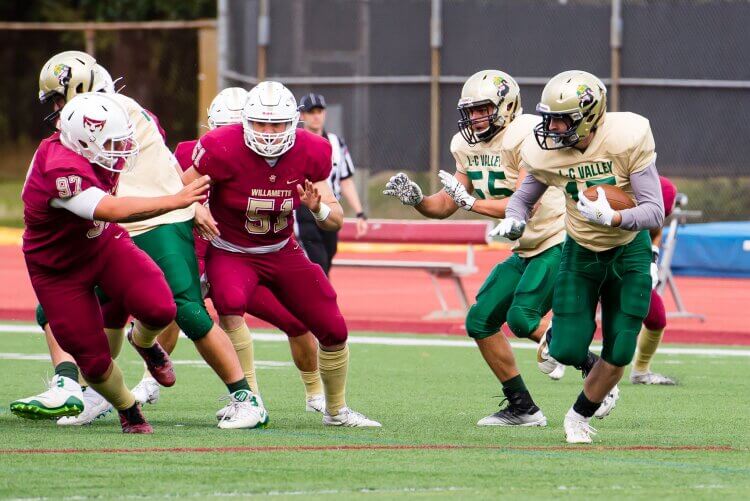
The State of Washington is separated by the Cascade Mountain Range. To get to Snohomish, the team had to cross Snoqualmie Pass. As the team bus began to make the descent into western Washington, they came upon an accident. Already running late, Thorson knew they would be cutting it close to making the game on time.
“I’m communicating with the opposing coach kind of giving him updates and telling him what was happening. Meanwhile, I can see the clock ticking, we’re losing time, and I can tell that we’re going to be late, so some of the players get off the bus and start getting dressed for the game along the freeway. But the bus is moving periodically, so the players, as they’re trying to get dressed, are running to keep up with the bus.”
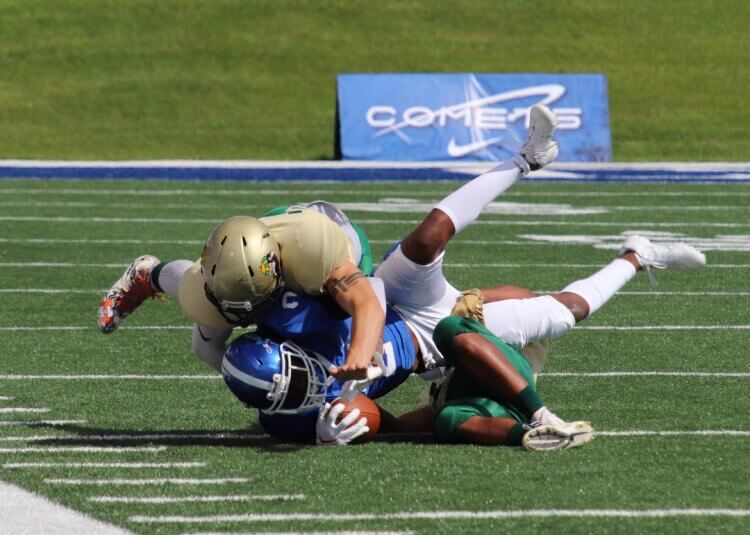
Delayed by another two hours because of the accident, the Loggers arrived 45 minutes after the game was scheduled to begin. The coaches agreed to play, but with some changes to the game schedule including shortened quarters and a shortened half time. Despite all of these challenges, the Loggers played an unbelievable first half and went into half-time with a 21-0 lead. However, the Red Raiders weren’t ready to fold it in. They stormed back and scored three unanswered touchdowns. With about three and a half minutes left in the game, the Loggers clung to a 21-20 lead and had possession of the ball. Victory was in their sights. And then…the lights went out. Thorson shared, “Suddenly the stadium goes black. The lights went out because there was a city ordinance that required the lights to be turned off at 10:00pm. This was done automatically on a timer and once the lights were off, they could not be turned back on. So, here we are, after all of this, three and a half minutes left in the game, and the lights go out.” The coaching staffs agreed to play the remaining time prior to their next scheduled game a month later. With plans to finish the game settled, the team bus departed to head home to Lewiston, Idaho. It didn’t get very far. Before the Loggers could leave the parking lot, the bus stalled and would not re-start.
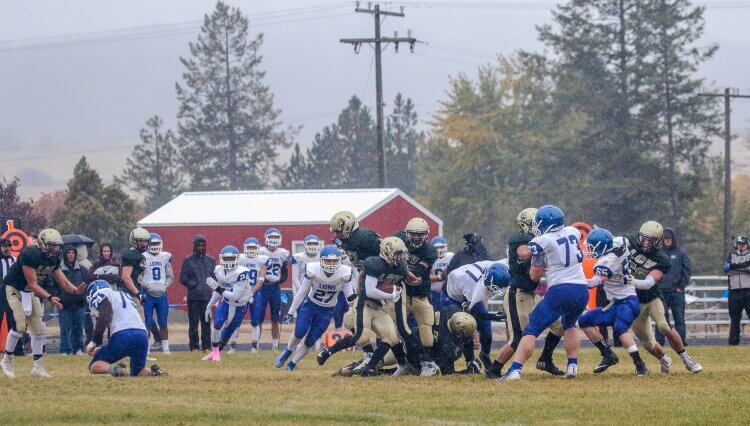
It’s 11:00 pm on a Sunday night and the Loggers are still six hours from home. Through the kindness of strangers, a solution emerged. The parents of the Everett ball boy invited the team to their home. The husband and wife, driving separate vehicles, spent the next 90 minutes transporting players and coaches, taking three people at a time. In the meantime, law enforcement arrived and required the Loggers to move the bus prior to Monday morning traffic. Thorson shared,
“So, there’s no local tow trucks so I call a tow truck from about 35 miles away. They say it’s almost midnight on a Sunday and they say we’ll have to pay almost two thousand dollars to come and retrieve the bus and tow it to their facility almost 35 miles away. I have no choice but to do it. And then, finally, the bus driver and I get back to this kind lady and her family’s house about 1:30 am. When we arrived, we found they had set up sleeping accommodation for over 20 of our players and coaches. Loggers were sleeping in their living room, office, den, and 2 spare bedrooms. The next morning the family made breakfast for the team. We then rented 3 vans and they drove the coaches to the rental company to get the vans and retrieve the players to leave Snohomish and head back to Lewiston.”
Thorson can find the humor now in the memory of that trip but was also quick to share that it was due to the kindness and good graces of the considerate and generous family who took them in that they were able to quickly identify a safe solution to a very challenging situation.
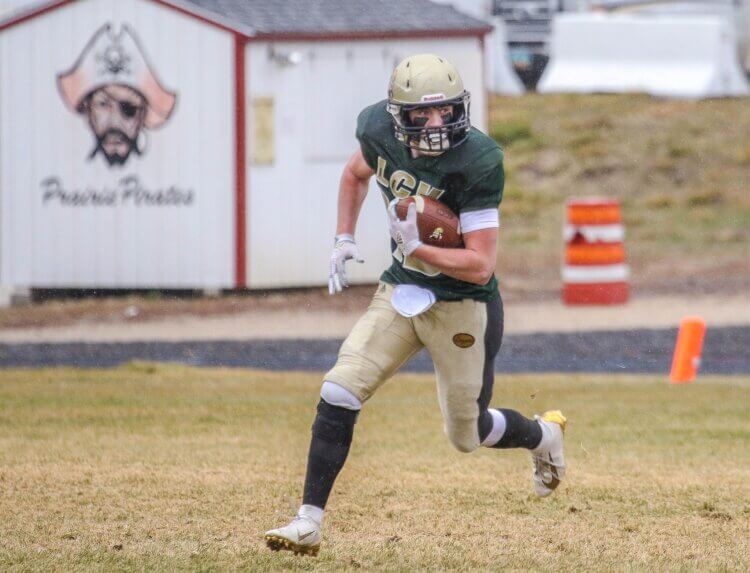
The LC Valley Loggers are unique. Members of communities outside of the Lewis-Clark Valley recognize how special the program is. People choose to work for them for free. The love of the game and the opportunity to help young people realize their potential writes their paychecks. Young men want to play. They are not motivated by scholarship dollars. Rather, they are motivated by the opportunity to continue their education, meet new people, travel to new places, and to continue to play a game they love.
Part I: For the Love of the Game
Part II: An Idea and Dream Bob Could Not Let Go
Part III: It’s All About the Kids
Author’s Note: Like most competitive athletics programs, COVID-19 interrupted the Loggers 2020 season. Unable to play because of the virus, student-athletes continue to work towards degree completion and, like the coaches, are preparing to take the field in 2021.
If you are interested in following the LC Valley Logger Football Program, please visit their website at www.lcvalleyloggers.com and check them out on Facebook at “Lewis-Clark Valley College Football.”

Grandpa enjoyed this article and wishes Ramon would consider returning to Lewis & Clark State to finish his degree, maybe he could help with the football team as a trainer or helper while doing so even while not playing. The coaches sound so enthusiastic and invested in that program. Living there sounds so much more reasonable than many places and the college so involved with the community. Please share this news from Grandpa and Grandma.